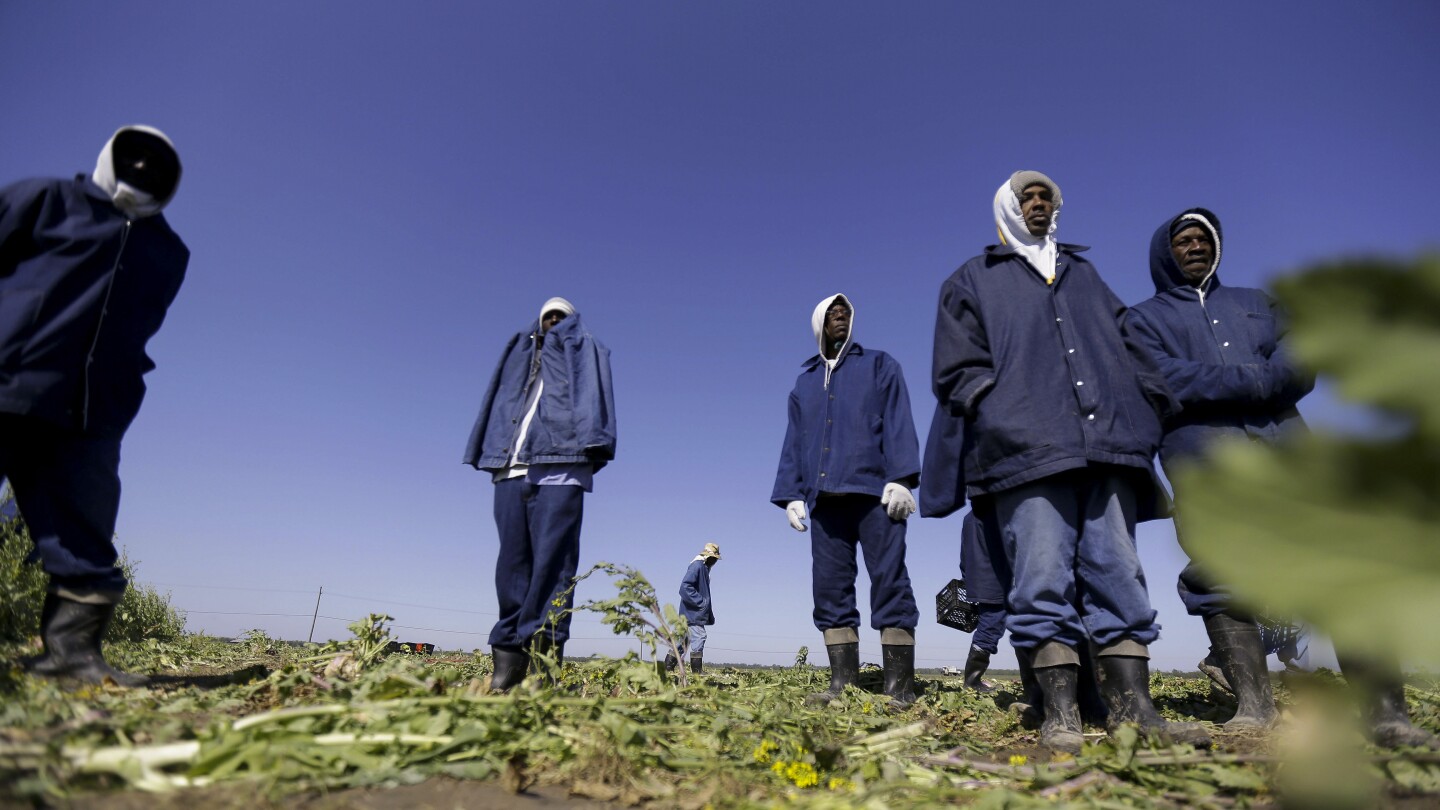Some prisoners work on the same plantation soil where slaves harvested cotton, tobacco and sugarcane more than 150 years ago, with some present-day images looking eerily similar to the past. In Louisiana, which has one of the country’s highest incarceration rates, men working on the “farm line” still stoop over crops stretching far into the distance.
In addition to tapping a cheap, reliable workforce, companies sometimes get tax credits and other financial incentives. Incarcerated workers also typically aren’t covered by the most basic protections, including workers’ compensation and federal safety standards. In many cases, they cannot file official complaints about poor working conditions.
For instance, the U.S. has blocked shipments of cotton coming from China, a top manufacturer of popular clothing brands, because it was produced by forced or prison labor. But crops harvested by U.S. prisoners have entered the supply chains of companies that export to China.
:reverse-uno:
Almost all of the country’s state and federal adult prisons have some sort of work program, employing around 800,000 people, the report said. It noted the vast majority of those jobs are connected to tasks like maintaining prisons, laundry or kitchen work, which typically pay a few cents an hour if anything at all. And the few who land the highest-paying state industry jobs may earn only a dollar an hour.
Altogether, labor tied specifically to goods and services produced through state prison industries brought in more than $2 billion in 2021, the ACLU report said. That includes everything from making mattresses to solar panels, but does not account for work-release and other programs run through local jails, detention and immigration centers and even drug and alcohol rehabilitation facilities.
During the six-year period the AP examined, surplus raw milk from a Wisconsin prison dairy went to BelGioioso Cheese, which makes Polly-O string cheese and other products that land in grocery stores nationwide like Whole Foods. A California prison provided almonds to Minturn Nut Company, a major producer and exporter. And until 2022, Colorado was raising water buffalo for milk that was sold to giant mozzarella cheesemaker Leprino Foods, which supplies major pizza companies like Domino’s, Pizza Hut and Papa John’s.
Its a great and harrowing article from ap, have a read
I spent six months in county jail, around 2005. I was in the ‘farmers tank’ - basically a short list of non violent jailed who were eligible to do things outside the jail. I received no compensation for my free labor, except the promise that if i didnt, id be moved to general population, where ‘things could always be worse’ .
I spent my time walking the beach in jail stripes, under gun point, picking up trash. I mowed public parks for three neighboring counties. Under gunpoint. I changed oil on deputies squad cars and their personal vehicles, under gun point of course. I fixed two toilets, and two shower valves (they found out i am a service plumber when i complained about the hot water not working).
This is standard operating procedure in state jails, federal jails, and local lockups.
Thats fucked up

For instance, the U.S. has blocked shipments of cotton coming from China, a top manufacturer of popular clothing brands, because it was produced by forced or prison labor. But crops harvested by U.S. prisoners have entered the supply chains of companies that export to China.
This part drives me mad. It’s 100% just “ok for me, but not for thee” shit.
That hipocrisy is on the eu tbh. But usa having agro laborers in same place as plantations is some wild shit
Many of the companies buying directly from prisons are violating their own policies against the use of such labor. But it’s completely legal, dating back largely to the need for labor to help rebuild the South’s shattered economy after the Civil War. Enshrined in the Constitution by the 13th Amendment, slavery and involuntary servitude are banned – except as punishment for a crime.






